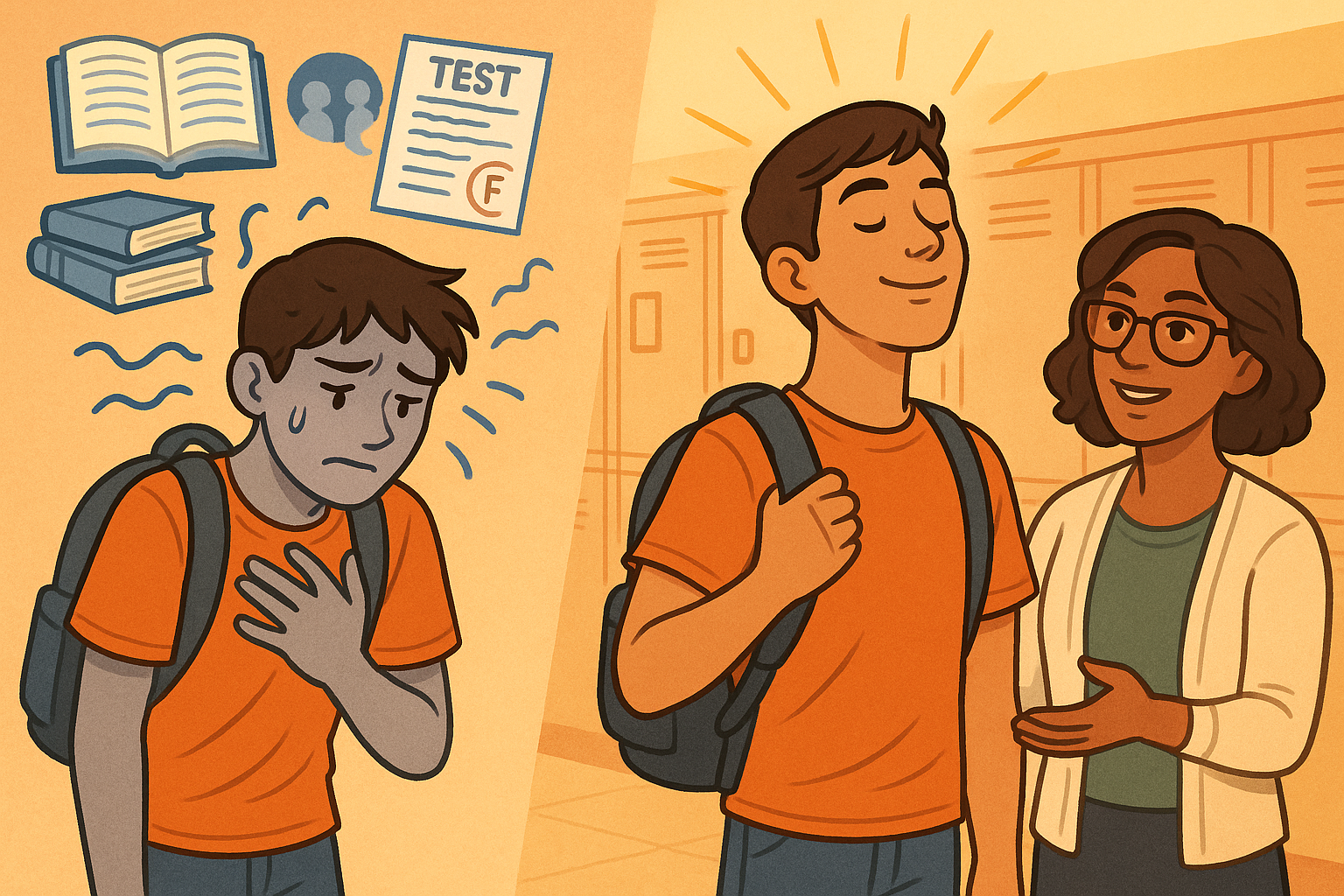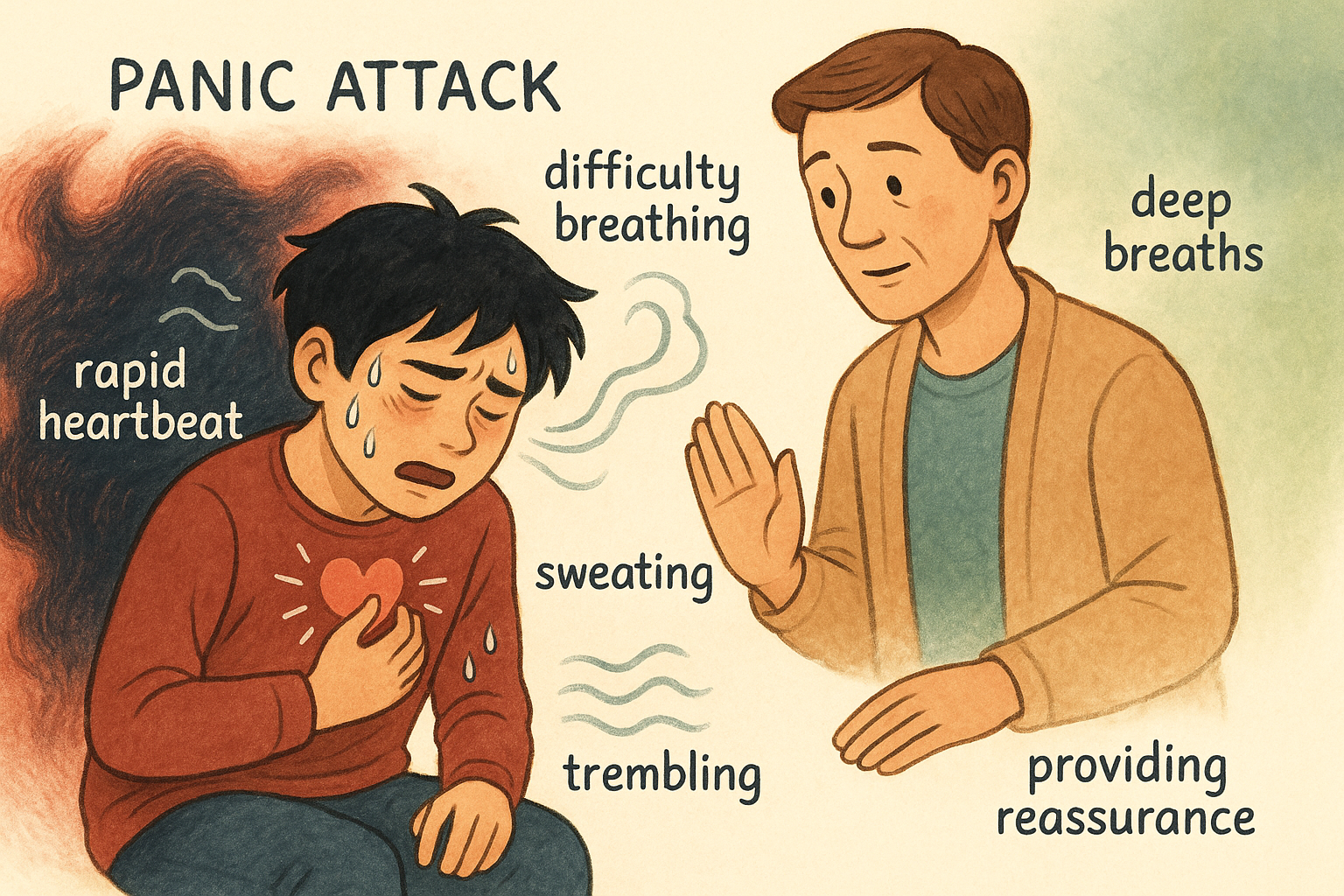School anxiety is one of the most common forms of anxiety experienced by teenagers, affecting their academic performance, social relationships, and overall well-being. Understanding the various triggers and implementing effective strategies can help teens navigate their educational journey with greater confidence and success.
Understanding School Anxiety in Teenagers
School anxiety encompasses a range of fears and worries related to the academic environment. Unlike occasional nervousness before a big test, school anxiety is persistent and significantly impacts a teen’s daily functioning. It can manifest as physical symptoms, emotional distress, and behavioral changes that interfere with learning and social development.
Common School Anxiety Triggers
Academic Pressure: The increasing emphasis on grades, standardized testing, and college preparation can create overwhelming pressure for teens. Fear of failure, perfectionism, and unrealistic expectations contribute to significant anxiety.
Social Situations: Navigating peer relationships, fear of judgment, public speaking, and group activities can trigger intense anxiety in teens who struggle with social confidence.
Performance Anxiety: Tests, presentations, and being called on in class can cause significant distress, especially for teens who fear making mistakes or being embarrassed.
Transitions and Changes: Moving to a new school, changing classes, or transitioning from middle school to high school can trigger anxiety about the unknown and fear of not fitting in.
Teacher Interactions: Difficult relationships with teachers, fear of authority figures, or past negative experiences can create ongoing anxiety about classroom participation.
Recognizing School Anxiety Symptoms
Physical Symptoms:
- Headaches or stomachaches before school
- Nausea or vomiting on school days
- Fatigue or sleep disturbances
- Muscle tension or restlessness
Emotional Symptoms:
- Excessive worry about school performance
- Fear of being late or missing school
- Crying or emotional outbursts related to school
- Feelings of dread about attending school
Behavioral Symptoms:
- School avoidance or frequent absences
- Procrastination on assignments
- Declining academic performance
- Social withdrawal from peers
Building Academic Confidence
Set Realistic Goals: Help teens break down large projects into manageable tasks and celebrate small victories along the way. This builds confidence and reduces feelings of overwhelm.
Develop Study Skills: Teaching effective study techniques, time management, and organization skills can reduce anxiety by helping teens feel more prepared and in control.
Practice Self-Compassion: Encourage teens to treat themselves with kindness when they make mistakes, understanding that learning involves trial and error.
Focus on Effort Over Outcome: Emphasize the importance of effort and improvement rather than perfect grades or performance.
Managing Social Anxiety at School
Gradual Exposure: Start with small social interactions and gradually work up to more challenging situations, building confidence through successful experiences.
Role-Playing: Practice social scenarios at home to build confidence and develop coping strategies for different situations.
Identify Safe Spaces: Help teens find places at school where they feel comfortable and supported, such as the library, counselor’s office, or specific clubs.
Build Social Skills: Teach conversation starters, active listening skills, and ways to join group activities.
Coping Strategies for School Anxiety
Preparation Techniques:
- Use planners and calendars to stay organized
- Prepare materials the night before
- Review class schedules and locations
- Practice presentations or speeches beforehand
In-the-Moment Strategies:
- Deep breathing exercises before entering classrooms
- Positive self-talk and affirmations
- Grounding techniques to stay present
- Having a trusted friend or teacher to talk to
Communication with School Staff
Building positive relationships with teachers, counselors, and administrators is crucial for managing school anxiety. Encourage teens to:
Advocate for Themselves: Teach teens to communicate their needs and concerns to teachers and counselors appropriately.
Seek Support: Encourage the use of school counseling services, study groups, or peer support programs.
Understand Accommodations: If anxiety significantly impacts learning, explore possible accommodations such as extended time on tests or alternative testing environments.
Parent and Family Support
Open Communication: Create a safe space at home where teens can discuss their school-related worries without judgment.
Collaborate with School: Maintain regular communication with teachers and counselors to monitor progress and address concerns promptly.
Model Healthy Attitudes: Demonstrate healthy ways to handle stress and setbacks, showing teens that challenges are opportunities for growth.
Provide Perspective: Help teens understand that school is just one part of their life and that their worth isn’t determined solely by academic performance.
When Professional Help is Needed
If school anxiety is severe enough to cause regular absences, significant academic decline, or impacts other areas of life, professional intervention may be necessary. A mental health professional can provide specialized techniques and support.
For comprehensive support in managing teen school anxiety, visit StillNest Health. Our Parent & Teen Anxiety Guides specialize in helping teens develop confidence and coping strategies for academic success.
Remember, school anxiety is treatable, and with proper support, teens can learn to manage their anxiety while achieving their academic goals. The key is early intervention and consistent support from both family and school communities.
Discover more resources for teen anxiety and academic support at StillNest Health.



